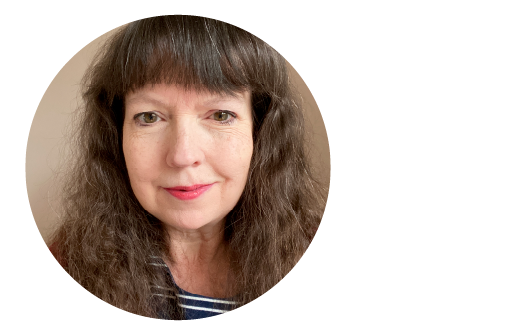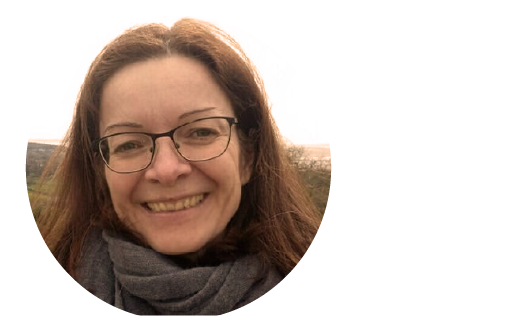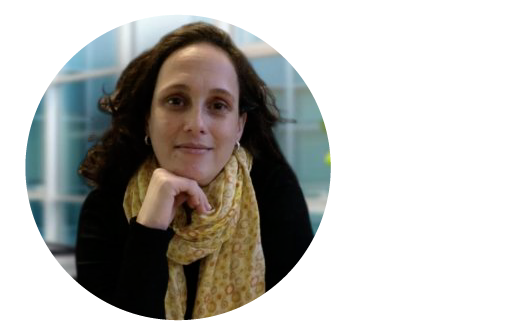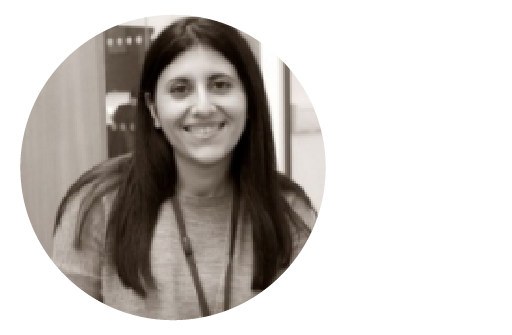Acknowledgements
This free course has been designed by a team of educators who have expertise in online education: Dr Leigh-Anne Perryman, Dr Kathy Chandler, Dr Simon Ball, Dr Irina Rets, Dr Carmel Kent, Dr Maria Aristeidou, Dr Koula Charitonos.
Leigh-Anne is Associate Director, Curriculum, at the Institute of Educational Technology (IET), leading the development of IET’s postgraduate curriculum, including the Masters in Online Teaching. Leigh-Anne has many years’ experience as an educator and has written for several Open University courses. Her research expertise includes equitable online learning, the impact of open educational practices and open pedagogy on learning and educational equity, and gender equity in the global South. Leigh-Anne is particularly interested in the ways in which open educational practices can amplify education’s role in addressing the climate emergency.
Kathy is a Lecturer in Online Teaching at the Institute of Educational Technology (IET). She has extensive experience of tutoring students studying health and social care and supporting colleagues to develop their skills in online teaching. Her research interests include online communities and digital pedagogy. She tries to live simply and sustainably but thinks that individual action is not enough, and that education has a key role to play in working for climate justice, giving everyone the skills to take collective action to transform our politics and the global economy.
Simon has a PhD in Freshwater Ecology and many years’ experience researching, writing about and teaching inclusive and accessible online teaching and learning. He has written content for, and taught, several Open University courses on this topic. He believes that actions towards environment- and climate-friendly living need to be embedded into all aspects of life, across all global contexts, to empower everyone to live sustainably regardless of their income.
Irina is a Lecturer in Online Teaching at the Institute of Educational Technology (IET). Irina has extensive experience of designing, teaching and carrying out the assessment on undergraduate and graduate courses in applied linguistics and technology-enhanced learning in three different countries. With expertise in inclusive Artificial Intelligence (AI) and linguistics, Irina’s current research focuses on social justice and technology. Irina strongly believes that teaching and research on or with the use of educational technology needs to critically reflect on environmental and sustainability issues.
Carmel is a Lecturer at the Institute of Educational Technology (IET). Carmel’s research focus is on Online Learning Communities, Interactivity in Learning and on using computational methods for Learning Analytics. Carmel is also focused on the use of AI models as Learning Affordances and on Ethical AI for educational applications.
Maria is a Senior Lecturer in Technology Enhanced Learning at the Institute of Educational Technology (IET). Maria’s research focuses on the design and evaluation of engaging learning technologies, and the improvement of the learning experience and outcomes of diverse student bodies. Her expertise also includes the design and evaluation of citizen science communities and tools that support people’s participation in biodiversity and sustainability research.
Koula is a Senior Lecturer in Learning + Technology at the Institute of Educational Technology (IET). Koula is concerned with understanding aspects of human learning supported by technology in ways that contribute to projects of educational justice. To this end, Koula’s work focuses on the study of knowledge work in professional settings and on pedagogical practices across formal and informal settings, while maintaining a strong interest in education in crisis contexts. Koula’s work foregrounds that educational spaces and practices can be transformative and have capacity to help create more just futures.
Contributors
Many people kindly agreed to participate in the audio and video recordings especially produced for the course Teacher development: Addressing the climate emergency. We warmly thank them for their generosity in giving their time. Those whose contributions appear within this free course, Supporting climate action through digital education, include the following:
Simon Behrman, Associate Professor at Warwick University
Sally Hayns, Chief Executive Officer of the Chartered Institute of Ecology and Environmental Management (CIEEM)
Desiree Lesatele, Student, National University of Samoa
Doreen Osborne, Climate Café Founder, Glasgow
Mary Troup, Climate Café Founder, Glasgow
Except for third party materials and otherwise stated (see terms and conditions), this content is made available under a Creative Commons Attribution-NonCommercial-ShareAlike 4.0 Licence.
The material acknowledged below is Proprietary and used under licence (not subject to Creative Commons Licence). Grateful acknowledgement is made to the following sources for permission to reproduce material in this free course:
Introduction and guidance
Images
Course image: Abir Abdullah/Climate Visuals (climatevisuals.org) https://creativecommons.org/ licenses/ by-nc-nd/ 4.0
Figure 1: Some climate-related education takes place in primary schools 10:10/Climate Visuals https://creativecommons.org/ licenses/ by/ 2.0
Figure 2: This course takes a position of ‘constructive hope’ courtesy: Kathy Chandler
Session 1
Images
Figure 1: Nature and biodiversity is identified as a key area of work for ‘green skills’ courtesy: Kathy Chandler
Figure 2: In Tinginaput, India, Bundei Hidreka shares her engineering skills with Rohim Miniaka, teaching him how to make a solar lamp credit: Abbie Trayler-Smith / UK Department for International Development CC BY-NC-ND 2.0 Deed | Attribution-NonCommercial-NoDerivs 2.0 Generic | Creative Commons
Figure 3: Taking time to notice nature can support your wellbeing courtesy: Kathy Chandler
Figure 4: Doreen Osborne, climate café founder courtesy: Doreen Osborne
Figure 5: Mary Troup, climate café founder courtesy: Mary Troup
Figure 6: Individual actions add together to make a difference. Cyclists taking out a group of school children to encourage cycling in Bogotá Ashden / Ashden https://climatevisuals.org/ asset/ 1428/
Figure 7: The impact of air travel is a particular concern Suhyeon Choi/unsplash
Audio/Video
Video 1: What skills do learners need? © The Open University
Video 2: How to talk with children about climate change: BBC Ideas/The Open University How to talk with children about climate change - BBC Ideas A BBC/Open University Partnership
Audio 1: Tom’s experience © The Open University
Session 2
Images
Figure 1: Plant-for-the-Planet Official on Flickr CC BY-NC 2.0 Deed | Attribution-NonCommercial 2.0 Generic | Creative Commons
Figure 2: mad mags on Flickr https://creativecommons.org/ licenses/ by-nc/ 2.0
Figure 3: Scottish Government/Climate Visuals The Scottish Government - gov.scot (www.gov.scot) CC BY 2.0 Deed | Attribution 2.0 Generic | Creative Commons
Figure 4: Dan Dennis/unsplash
Figure 5: Greta Thunberg urges MEPs to show climate leadership European Parliament © European Union 2020 European Parliament (europa.eu) CC BY 2.0 Deed | Attribution 2.0 Generic | Creative Commons
Figure 6: 14995841/Pixabay
Figure 7: Insure our Future on Flickr PDM 1.0 Deed | Public Domain Mark 1.0 Universal | Creative Commons
Figure 8: World Economic Forum 2022 CC BY-NC-SA 2.0 Deed | Attribution-NonCommercial-ShareAlike 2.0 Generic | Creative Commons
Figure 9: Department of Education Sign with graffiti Teachers, scientists, parents and children protest at Department for Education to demand climate and ecological truth be taught in schools - Extinction Rebellion UK Extinction Rebellion https://extinctionrebellion.uk/
Audio/Video
Video 1: Adapted from panel: Building power through youth organizing https://www.youtube.com/ watch?v=Wvy5vyJuEsg CC BY 3.0 Legal Code | Attribution 3.0 Unported | Creative Commons 350.org
Session 3
Images
Figure 1: Annie Spratt/unsplash
Figure 2/3/4: UNESCO (2017) adapted from Education for Sustainable Development Goals: Learning Objectives. Paris: UNESCO. Available at: https://unesdoc.unesco.org/ark:/48223/pf0000247444
Figure 5: adapted from Figure 8.1 ‘Impacts of Climate Change on Human Health’ in Ebi, Hess and Watkiss (2017) Health Risks and Costs of Climate Variability and Change. https://www.ncbi.nlm.nih.gov/books/NBK525226/
Figure 6: courtesy: Artists Literacies Institute, artistsliteracies.org Turn It Around, https://turnitaroundcards.org/
Figure 7: still image from 'Small Solutions for Big Problems', an animation by University of Cambridge (hosted on their public engagement YT channel) https://www.youtube.com/watch?v=HZiXsjoi5Es Creative Encounters/University of Cambridge
Figure 8: Sujan Sarkar/Climate Visuals https://creativecommons.org/licenses/by-nc-nd/4.0/deed.en
Figure 9: Ryan Brown/UN Women https://climatevisuals.org/asset/1150
Figure 10: Hoil Ryu/unsplash
Figure 11: Mika Baumeister/unsplash
Session 4
Images
Figure 1: Thirdman/pexels
Figure 2: Levels of participation in citizen science (Kythreotis et al., 2019, p. 5) https://www.frontiersin.org/articles/10.3389/fenvs.2019.00010/full#B97 TABLE 1. Levels of participation and engagement (adapted from Sui et al., 2013).
Figure 3: Kate Hand / MK Tree Growth Project https://storymaps.arcgis.com/stories/1852cb7f7c5843be860a2bec0f2fa0ee
Figure 4: adapted from D.R. Garrison, T. Anderson and W. Archer (1999) ‘Critical inquiry in a text-based environment: Computer conferencing in higher education’, The Internet and Higher Education, 2(2).
Figure 5: Van Tay Media/unsplash
Figure 6: Prashanth Vishwanathan/Ashden https://climatevisuals.org/asset/1550
Figure 7: Anna Shvets/pexels
Images of course authors:
Dr Leigh-Anne Perryman
Dr Kathy Chandler
Dr Simon Ball
Dr Irina Rets
Dr Carmel Kent
Dr Koula Charitonos
Every effort has been made to contact copyright owners. If any have been inadvertently overlooked, the publishers will be pleased to make the necessary arrangements at the first opportunity.
Don’t miss out
If reading this text has inspired you to learn more, you may be interested in joining the millions of people who discover our free learning resources and qualifications by visiting The Open University – www.open.edu/ openlearn/ free-courses.







